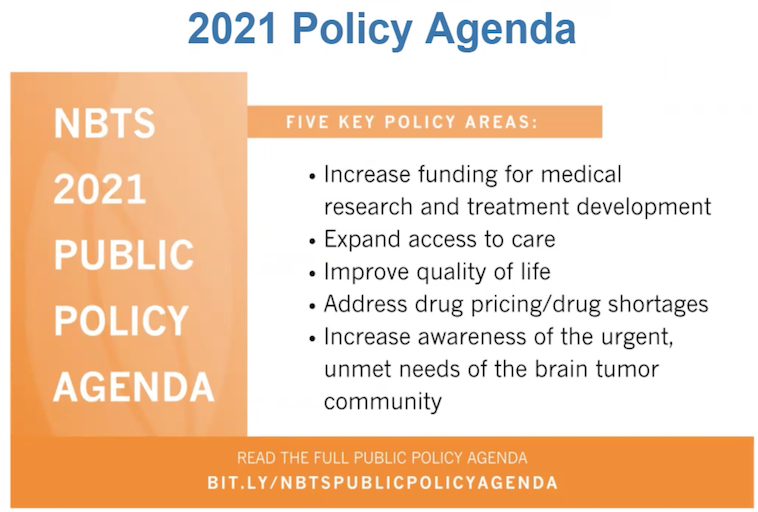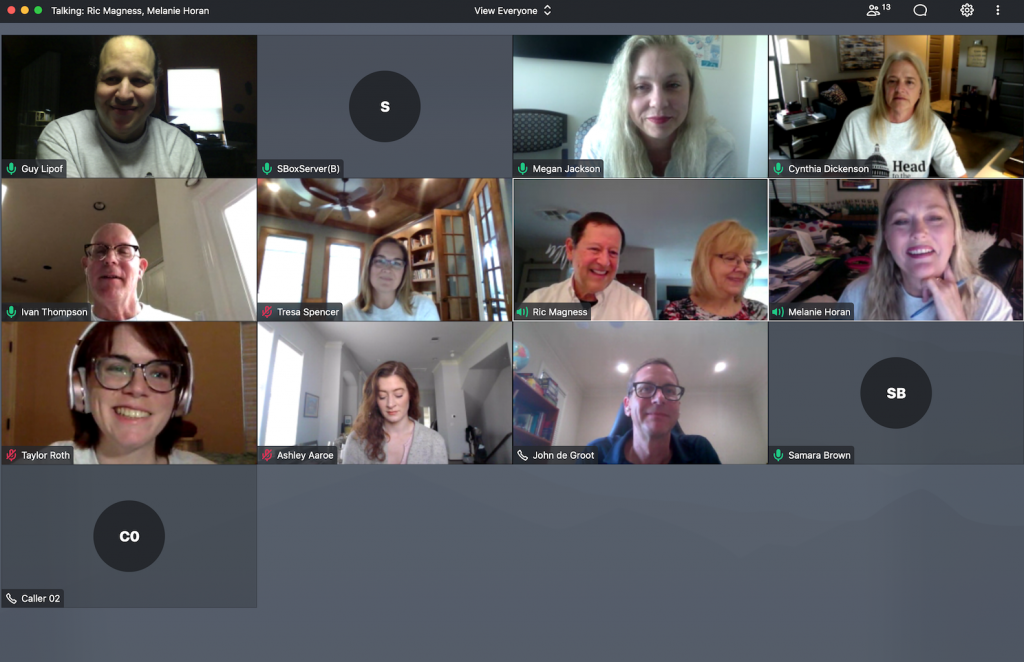This week was the yearly Head to the Hill event, organized by the National Brain Tumor Society. I participated in the trainings and today joined meetings with senate and congressional staffers. It was the first time I physically met with them. I have corresponded with staffers in the past, over both email and postal mail. I greatly appreciated them making time and engaging with us in physical dialogue.
In addition to introducing ourselves, the conversation centered around three topics; 1) Explaining Unique Challenges of Brain Tumors, 2) Medical Research Funding and 3) Telehealth Modernization Act. The first topic set context, explaining the importance and need of the community, while the second and third topics targeted impactful measures for current and future brain tumor patients. Some points discussed were:

Unique Challenges of Brain Tumors
- An estimated 700k Americans are living with a primary brain tumor. Approximately 84k will be diagnosed in 2021.
- Over 2,000 Texans are diagnosed annually with brain cancer. Over 1,100 Texans die annually due to a brain/ central nervous system tumor.
- Brain cancer does not discriminate, it inflicts men, women and children of all races and ethnicities.
- Despite the devastating prognoses, there are only five FDA approved drugs, and one device, to treat brain tumors. Glioblastoma (GBM) is the most aggressive, with a median survival time of 15 months and 5-year survival of ~5% after initial diagnosis.
- Brain tumors are the leading cause of cancer-related death in children and young adults in the US. There is no approved standard of care treatment for pediatric brain tumors.
Medical Research Funding
- Our funding asks from last year were passed/ supported. Our focus this year is to keep funding levels on pace with inflation, as well as in-line with professional judgements of medical experts. Specifically $46.111 billion to the NiH and $7.609 billion to the NCI, covering:
- Growing NCI Glioblastoma Therapeutics Network
- Sustaining and growing NCI Project HOPE and GBM CARE
- Implementing STAR Act
- Continuing Childhood Cancer Data Initiative
- Continuing support of other brain tumor priorities within NIH/ NCI like the Neuro-Oncology Branch, Clinical Trial Cooperative and Kids First Pediatric Research
- Grow existing funding sources at the Department of Defense, specifically $130 million for the Peer Reviewed Cancer Research Program (PRCRP).
Telehealth Modernization Act
- Build on technologies pioneered during the COVID-19 pandemic by continuing and improving access to tele-health/ tele-medicine, specifically co-sponsoring and passing bills H.R. 1332/ S. 368.
- This bill would make permanent adequate health insurance reimbursement, regulations that enable continued access to brain tumor clinical trials and continued access to general tele-health services.
It was very nice to work with other like minded and passionate folks. We had in our senate calls brain cancer patients, care partners and clinicians. A very valuable experience.
